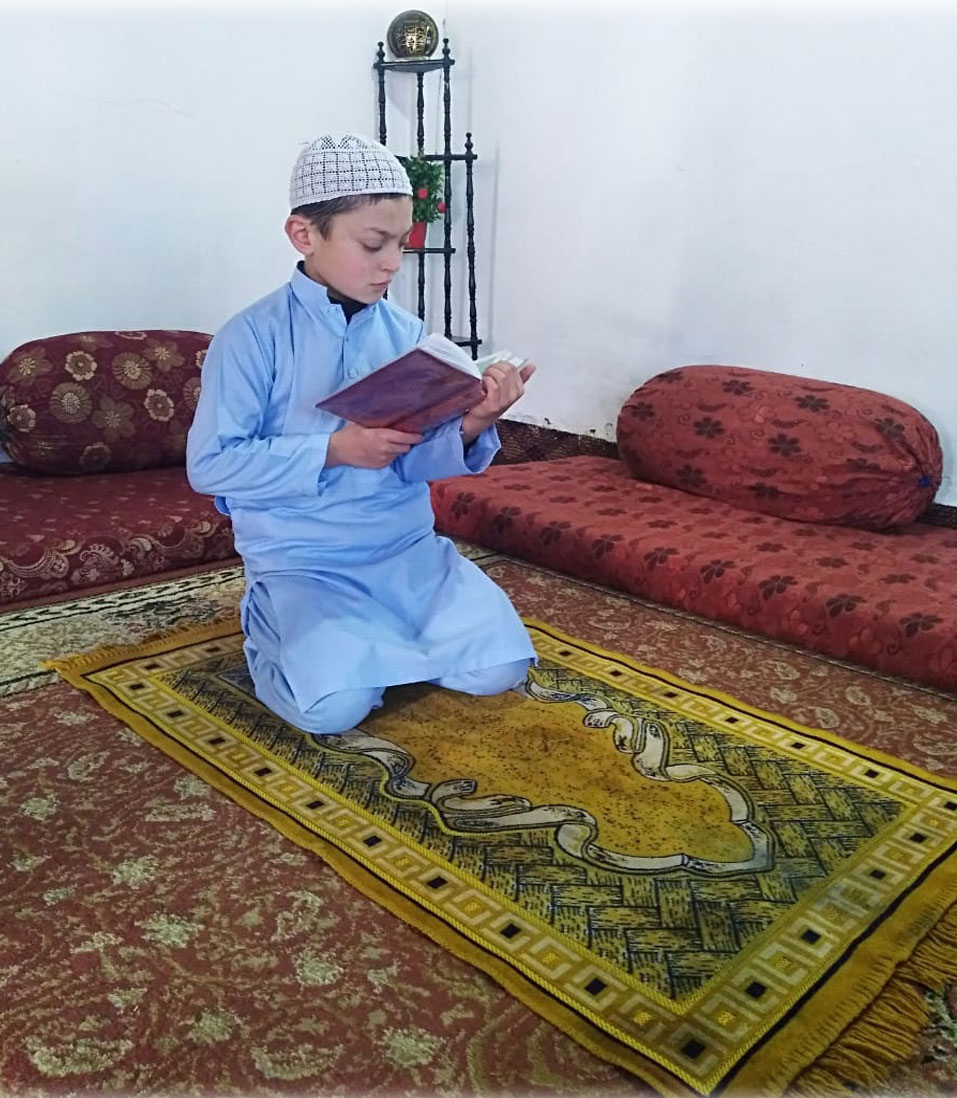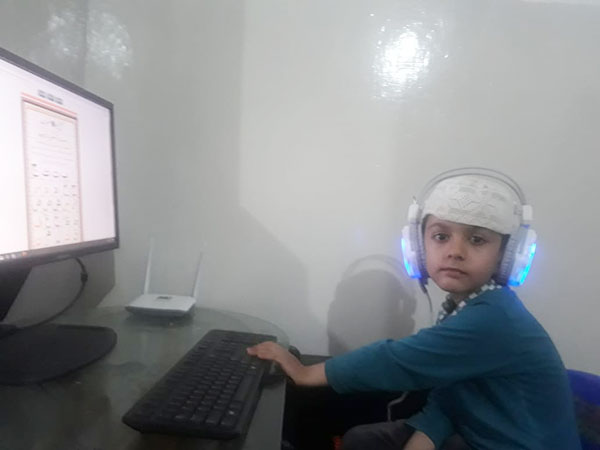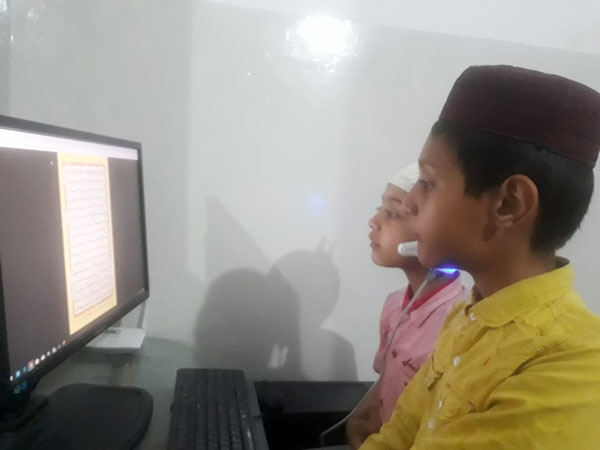Etiquette of reciting the Qur’an

The Holy Quran is the source of growth and guidance and the last divine book, which was revealed to the last prophet of Allah,Hazrat Muhammad (SAW). The night this last divine scripture was revealed, Allah Almighty interpreted it as Laylat al-Qadr. It shows the greatness and exaltation of the Holy Quran. It cures spiritual and physical ailments. There is no end to its wonders and wonders, no limit to its benefits. This is the book that shows the way to the first and the last, the jinn and the vans. Only those who trusted in the Book of Allah succeeded, those who acted according to it, benefited from the happiness of religion and the world. These features are also because it is a safe book, there are various reasons for its protection, one of the reasons is the abundance of recitation. The Holy Quran is distinguished from ordinary books, so there are some etiquettes of its recitation, which must be observed. The following etiquettes are mentioned below. 1-
Purity: Recite it, whether standing or sitting, if it is recited without lying down, it will be rewarded. The Holy Qur’an says: We consider the creation of the earth ”(Surah Al-Imran: 1). However, it is better to recite it while sitting, facing the qiblah and in a state of ablution.
2- quantity of recitation: “Whoever completes the Qur’an in less than three days has not understood it.” (Sunan Abi Dawood) It is narrated that the Holy Prophet said to Hazrat Abdullah bin Umar: Complete the Qur’an in seven days. (Bukhari and Muslim) From this, it is known that the moderate level is that one Qur’an should be finished in a week, moreover, two should be completed in a week, this one will be completed in about three days. If the reciter is a scholar and his hobby is to meditate on the meanings and subjects of the Holy Qur’an, then one Qur’anic recitation in a month is enough for him.
3- divisions of surahs; He should divide the Qur’anic Surahs into seven levels, as evidenced by the hadiths. ”Hazrat Uthman used to start reciting the Holy Qur’an on Friday night and recite it till the end of Surah Al-Maidah, from Surah An’am on Saturday night. To Surah Hud, from Surah Yusuf to Surah Maryam on Sunday night, from Surah Taha to Surah Qasas on Monday night, from Ankabut to Surah As on Tuesday night, from Surah Zumar to Surah Rahman He used to recite from Surah Zumar to Surah Ar-Rahman on Wednesday night and from Surah Al-Waqi’ah to the end on Thursday night (Friday night).
4- Recitation with tarteel:It is mustahabb to recite the Qur’an with tarteel(slowly with tajweed). Reading slowly helps in meditation, so Hazrat Umm Salma stated about the recitation of the Holy Prophet: “You used to recite each letter clearly” Ibn ‘Abbas says: “It is better for me to recite only Surah Al-Baqarah and Al-Imran than to recite the whole Qur’an in a hurry.” It should be noted here that Tartil is not only recommended for meditation, but also for a person who does not understand the meanings of the Qur’an because reading it slowly has a greater effect on the heart.
5- Condition during recitation: While reciting, one should consider the promises and threats of the Holy Qur’an, the torment and the conditions of the Day of Resurrection, and the verses of the destruction of the previous nations, and it is mustahabb to weep during this time. Thus, it is in the hadith: “Translation:“ Read the Qur’an and weep. If you do not cry, then make it a tearful face.” If you cant cry, then let man grieve his heart and think what the Qur’an has commanded me to do and what it has forbidden me . Then look at your shortcomings in obeying the Qur’anic injunctions and prohibitions, it will certainly create grief and grief will move you to cry.
6- To pay the rights of the verses of the Holy Qur’an; During the recitation, when a verse of prostration(sajda) is passed or he/she hears the verse of prostration from another, he should prostrate, when he/she is in a state of purity(wudhu).
7- Recitation with sound: Recitation with such a voice is part of the etiquette of recitation so that one can hear oneself, because reading means that the letters are played through the voice, therefore the voice is necessary and the lowest level of the voice is that one can hear oneself, where When it comes to reciting aloud, it is both beloved and makrooh. Recitation aloud has been praised in some traditions and disliked in some hadiths.The implication is that if there is a fear of riya (showing off) a person should recite it slowly, but if he is not afraid of it and does not interfere with another’s prayers or any other action, it is better to read aloud, because there is more action in it and Jahri recitation awakens the heart, gathers its thoughts, removes sleep, it is more enjoyable to read.
8- Tahseen Qiraat: The Holy Quran should be recited in a beautiful voice, full attention should be paid to the recitation of the Qur’an, but the letters should not be drawn so much that the words should be changed.If these conditions are kept in mind, then the beautifying the recitation is Sunnah, it is in the hadith: Adorn the Qur’an with your voice. (Sunan Abu Dawud) .
9- Dua after recitation: دعا After the recitation, one should make dua in any language, and it is better to read the dua’ which is written at the end of most of the Qur’anic manuscripts’’ اللّٰہم ارحمنی بالقراٰن العظیم‘‘ In some books it is said that the Holy Prophet used to recite this dua after the recitation. (روح البیان )
10- Realising Greatness of the Qur’an: the reciter should admit the greatness of the word of Allah and imagines that the revelation of the Qur’an is undoubtedly a great example of God’s grace and benevolence. That He sent down His Word from the Throne for the growth and guidance of His servants. Revealed for guidance, otherwise, the spiritual burden of this book and the world of manifestation is that if the world appears in the example, even the hardest mountains will not be able to bear it. When the reciter recites, he should invoke in his heart the greatness and majesty of the speaker (Allah Almighty) and believe that it is not the word of any human being, but the word of the Creator of the universe and many etiquettes and requirements of his recitation. Are Not every heart is capable of carrying the burden of the wisdom of the Qur’an and its great meanings, so it is necessary that the heart of man be pure and enlightened with the light of greatness and dignity. When Hazrat Ikrimah opened the Holy Qur’an, he would faint and say, “This is the word of my Lord, this is the word of my Lord.
11- Considering the Qur’anic Speech as Special for Yourself: One etiquette is to consider every speech of the Holy Qur’an as special for yourself. When there is no verse or verse of command, think that I am commanded and I am forbidden. If he recites the verses of the Promise, then he should oblige them in his favor. If one reads the stories of the Prophets (peace be upon them), one should understand that the stories are not meant here, but to learn from them that Allah Almighty has narrated from the incidents of testing, patience, help and perseverance of the Prophets (peace be upon them) in His Book. We want to be steadfast in our education and our religion. The reason for assuming the Qur’anic discourses for oneself is that the Qur’an was not revealed for a single person, but for healing, guidance, mercy and the message of God to the whole world. All people are addressed to the Qur’an, so everyone should assume that the Qur’an is the goal.
12- Influence of the heart; one etiquette is to be influenced by Qur’anic verses. The way the verse is recited, the effect should be in the heart. If it is a verse of fear, then it should cause fear and if it is a verse of sorrow, then it should be sad. If it is a verse of Raja(hope), then it should create a state of hope. holy prophet (SAW) said to Hazrat Abdullah bin Masood: Recite the Qur’an! Hazrat Ibn Mas’ud says: I started reciting Surah An-Nisa ‘when I came to this verse: Translation: We will bring them to testify. ” (Surat an-Nisa ‘: 5) Then tears flowed from the eyes of the Prophet (peace be upon him). He said: “Now stop.” (Bukhari Sharif) This condition of the Prophet (peace be upon him) arose because his blessed heart was fully engaged in observing this scene. During the recitation, the believer should be impressed by the content of each verse in such a way that the effect is felt on his outward and inward appearance.
13- Sufi way of recitation: Achieve such progress and perfection in the recitation that it is as if he is listening to the words of the speaker instead of himself. There are three levels of recitation. I am standing and reciting and the Almighty is watching and listening. …… The second stage is to create in the heart the feeling that Allah Almighty is watching him and addressing him with His grace and grace and mentioning His reward and benevolence. The third stage is to observe the speaker in the word and the attributes of the speaker in the words that everything else has disappeared from his sight.
14- Thinking of oneself as nothing: this means that one should acquit oneself of power and not give importance to one’s self at any moment, for example, recite the verses of the Holy Qur’an in which the virtuous servants are praised, so that one does not think that I am one of them, but consider that this rank is very high and belongs to the high people.Read with the hope of joining these pious servants and when reciting the verses which mention the sinful servants and warn them of the torment, think that these verses should also be addressed. On this occasion, fear the wrath of Allah and disobedience. Seek refuge in Allah from suffering from infidelity, disbelief and polytheism. Whoever looks at his shortcomings during the recitation and thinks that I am a total sinfull human, then he will have the nearness of Allah.When nearness to God was achieved, the purpose of the recitation was also achieved. (احیاء علوم الدین امام غزالیؒ)
For Online Quran Classes from Islamabad Pakistan contact us today.







 It was narrated that Abu Umaamah al-Baahili (may Allaah be pleased with him) said: I heard the Messenger of Allaah (peace and blessings of Allaah be upon him) say: “Read the Qur’aan, for it will come on the Day of Resurrection and intercede for its companions…” Narrated by Muslim, 804.
It was narrated that Abu Umaamah al-Baahili (may Allaah be pleased with him) said: I heard the Messenger of Allaah (peace and blessings of Allaah be upon him) say: “Read the Qur’aan, for it will come on the Day of Resurrection and intercede for its companions…” Narrated by Muslim, 804.